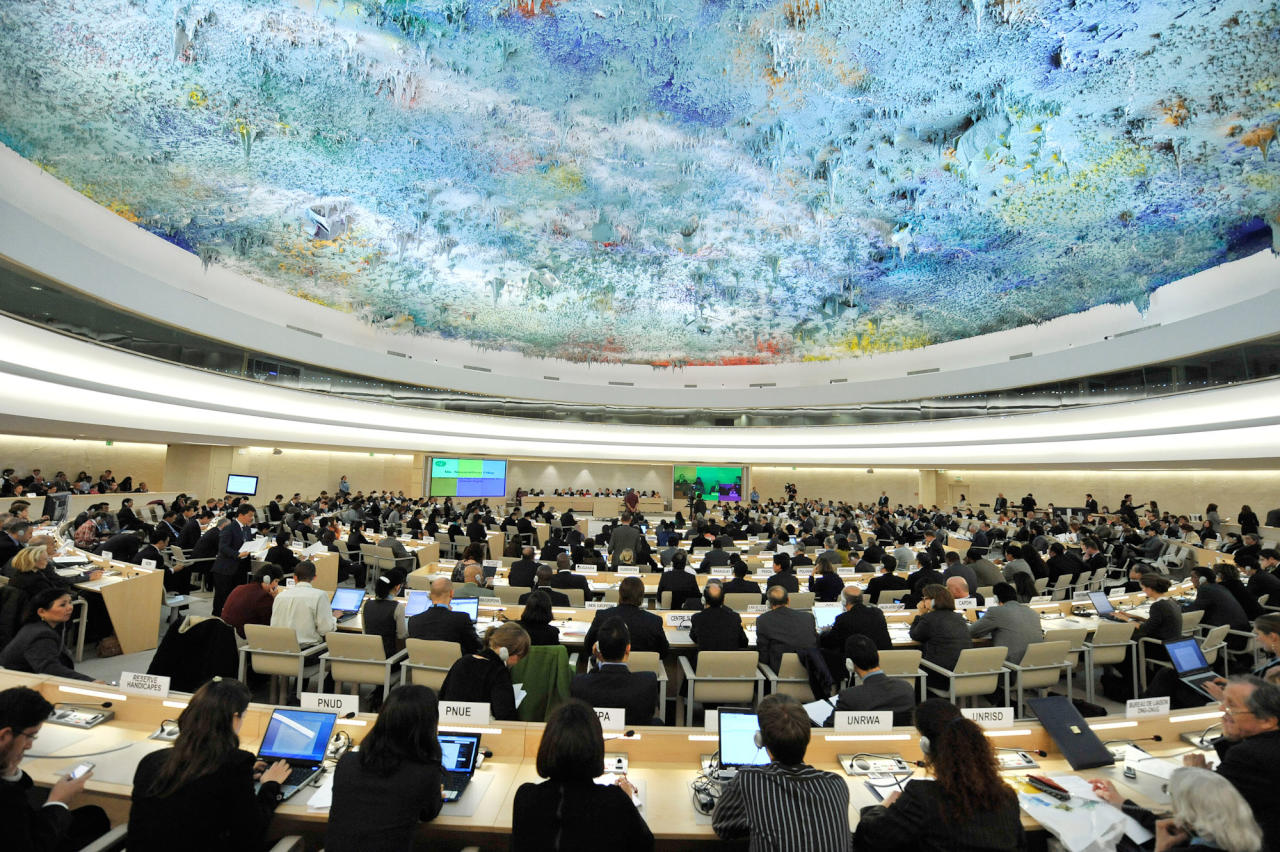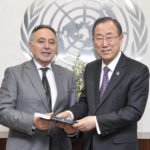Lack of accountability behind serious rights abuses in Libya
Friday 14 September, the Cairo Institute for Human Rights Studies (CIHRS) and Lawyers for Justice in Libya delivered a joint oral statement before the 21st session of the UN Human Rights Council , currently convening in Geneva. The intervention addressed the lack of accountability mechanisms and the absence of political will to enforce the rule of law in Libya, which have resulted in various tragic events, most recently the attack on the US embassy and the killing of the ambassador and a number of US and Libyan officials. It further asked that the international community, and members of the Human Rights Council, stand up to their responsibility of protecting and promoting human rights in post Al-Gaddafi Libya, most specifically that the Council ensures that any resolution adressing asistance to Libya contains an effective human rights monitoring and reporting component.
United Nations Human Rights Council: 21st Session
Oral Intervention: Item 3- General Debate
Cairo Institute for Human Rights Studies (CIHRS)
14 September, 2012
Delivered by: Mariam El Hadri
Thank you Madam President,
This statement is made on behalf of CIHRS and Lawyers for Justice inLibya.
We would like to begin by extending our deepest condolences to the families and friends of Ambassador Chris Stevens, otherU.S.embassy staff members, and the ten Libyan security personnel who passed away in the tragic events that occurred inBenghaziTuesday evening. This attack represents the dire state of the rule of law inLibyaand highlights the impunity with which perpetrators of gross violations of national and international law are currently operating during this transitional period.
This attack follows an alarming pattern of impunity; most recently demonstrated by the systematic attacks on religious minorities in the country, including the destruction of historic and religious sites and the desecration of graves that occurred throughout the country at the end of August. In a News Release issued on Monday the Special Rapporteur on Freedom of Religion argued that “The long term prospects for freedom of religion or belief and religious diversity in the entire country seem to be at stake,” and three mandate holders “expressed concern at reports that the Libyan authorities did not seek to stop the demolitions.” In fact, according to several eye-witnesses, members of Libyan security forces actively assisted those demolishing these sites and abused those who attempted to protest these demolitions.
The Libyan government has failed to ensure adequate protections against recurrence of such acts and has not taken any steps to hold accountable the perpetrators of these serious violations. The government’s complicity in such violations remains a grave concern.
The government’s failure to protect human rights and to enforce the rule of law has only perpetuated the culture of impunity which existed under the previous regime. Unfortunately, this Council has also been a part of perpetuating a culture of impunity for the Libyan government. We remind the Human Rights Council of its resolution on assistance for Libya in the field of human rights adopted in the Council’s 19th session, in which it elected to provide only technical assistance to Libya but did not include any mechanism for monitoring or reporting on the human rights situation in Libya- a decision that appears to have been made out of political concerns at the detriment of human rights and accountability.
The Libyan government must look beyond the incident of regime change and aim to protect the human rights of the Libyan people, regardless of the identity of the perpetrator or government actor.
We strongly urge the Member States of the UN to demonstrate their continued commitment to the promotion of human rights and accountability for both past and present abuses in Libya by adopting effective measures to monitor the ongoing human rights situation in Libya, including those committed by both government and non-government actors, and by implementing reporting obligations on the Libyan government to ensure it adheres to its human rights obligations when the Libyan resolution comes up for discussion at the beginning of next year.
Thank you Madam President.
In United Nations Human Rights Council by CIHRSSeptember 14, 2012



